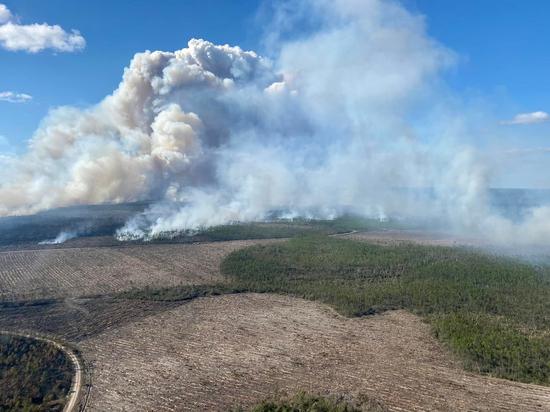Brown carbon fueling global warming, wildfires: study
Chinese scientists have discovered that brown carbon released by wildfires has made a bigger contribution to global warming than previously thought, warning that such warming could lead to even more wildfires in the future.
The study published on Saturday in the journal One Earth describes how the carbon caused by burning biomass in the northern hemisphere is accelerating warming in the Arctic.
"Observational analyses and numerical simulations show that the warming effect of brown carbon aerosols over the Arctic is up to about 30 percent of that of black carbon," said the paper's senior author Fu Pingqing, an atmospheric chemist at Tianjin University.
Over the past 50 years, the Arctic has been warming at a rate three times that of the rest of the planet, and it appears that wildfires are helping to drive this discrepancy, the researchers said.
They found that brown carbon from burning biomass was responsible for at least twice as much warming as brown carbon from fossil-fuel burning, according to the study.
In 2017, the Chinese icebreaker vessel Xuelong headed for the Arctic Ocean to examine which aerosols were floating around in the pristine Arctic air and to identify their sources.
The scientists on the vessel investigated how brown carbon was affecting the climate compared to the denser black carbon from high-temperature fossil-fuel burning.
Blazing wildfires are accompanied by vast plumes of brown smoke, made up of particles of brown carbon suspended in the air. Like black carbon and carbon dioxide, brown carbon warms the planet by absorbing solar radiation, according to the study.
"Increased wildfire events will emit more brown carbon aerosols, further heating the earth, thus making wildfires more frequent," said Fu.
"Our findings highlight just how important it is to control wildfires," Fu added.

